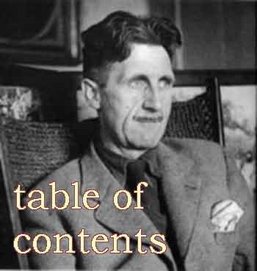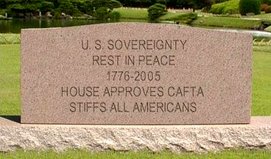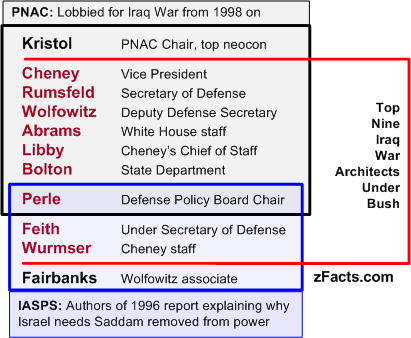'Kwanzaa' was invented by a black criminal in California
by Kathy Shaidle, with notes from Eli Schuster
BEFORE school lets out for the holidays this month, countless U.S. teachers and students will celebrate Kwanzaa. They will light black, red and green candles, and sing about the festival's "seven principles," such as faith, unity and creativity. Few schools in Canada mark the African-themed festival, but some do. For instance, students and staff at Oakwood Collegiate, a Toronto high school with a large black population, attended a Kwanzaa banquet earlier this month. Vice-principal Pat Agard says it is the second time the festival has been marked at the school, which boasts a 40-member African-Canadian Club. "We're just becoming aware of [Kwanzaa] now," the administrator says. "We're trying to let people know about it."
Held each year from December 26 until January 2, Kwanzaa is increasingly seen as an appropriate multicultural alternative to Christmas, a holiday considered too religious and "Eurocentric" for public schools. But there is one not-so-insignificant problem associated with Kwanzaa. While many teachers believe it to be an ancient African harvest festival, it was actually born, not in pre-colonial West Africa, but in 1960s southern California. It is, in fact, the brainchild of African-American radical activist, academic and convicted felon Ron Karenga.
In 1969, two rival radical groups battled for control of the UCLA black studies program: the Black Panthers and the lesser-known US, or United Slaves, led by Karenga. Both groups sauntered around campus carrying loaded guns. Perhaps inevitably, violence erupted. As David Horowitz recalls in Radical Son, Black Panther John Higgins was "murdered--along with Al 'Bunchy' Carter--on the UCLA campus by members of Ron Karenga's organization." The FBI infiltrated both groups after the shootout. The US groups turned to fighting "enemies within." The result: two female members were tortured by their "comrades" in May 1970. Both allege Karenga ordered, and participated in, their assaults.
In 1999, writer Paul Mulshine published his research into Karenga's violent past in Front Page Magazine. Mr. Mulshine found a May 14, 1971, Los Angeles Times report of the victims' testimony, which read: "The victims said they were living at Karenga's home when Karenga accused them of trying to [poison] him...When they denied it, allegedly they were beaten with an electrical cord and a hot soldering iron was put in [one victim's] mouth and against her face. Police were told that one of [the other victim's] toes was placed in a small vise which was allegedly tightened by one of the defendants. The following day... Karenga, holding a gun, threatened to shoot both of them."
Convicted of felonious assault and false imprisonment, Karenga was sentenced in 1971 to up to 10 years in prison. "A brief account of the sentencing ran in several newspapers the following day," Mr. Mulshine writes. "That was apparently the last newspaper article to mention Karenga's unfortunate habit of doing unspeakable things to black people. After that, the only coverage came from the hundreds of news accounts that depict him as the wonderful man who invented Kwanzaa." Shortly after his release from prison in 1975, Karenga (now armed, not with a pistol, but a doctorate) took over the Black studies department at california state University, Long Beach, which he runs to this day.
And what about Kwanzaa? The festival's seven days commemorate allegedly "traditional African" principles, such as "collective work" and "co-operative economics," each referred to by a Swahili name. "Why did Karenga use Swahili words for his fictional African feast?" asks Mr. Mulshine. "American Blacks are primarily descended from people who came from Ghana and other parts of West Africa. Kenya and Tanzania--where Swahili is spoken--are thousands of miles away. This makes about as much sense as having Irish-Americans celebrate St. Patrick's Day by speaking Polish." And why would Karenga schedule a harvest festival near the solstice, "a season when few fruits or vegetables are harvested anywhere?"
This month, the religious satire magazine The Door likewise questioned Kwanzaa's authenticity. "Karenga cobbled together a mishmash of different traditions and languages and blended them with Marxist ideas to reflect a unified African culture that doesn't exist anywhere," the magazine reported. "Ujima, or 'collective work,' one of the seven principles of Kwanzaa, is the term used by the socialist leader of Tanzania, Julius Nyerere, for his disastrous policy of placing tens of thousands of Tanzanians on collective farms."
"People think it's African, but it's not," admitted Karenga in a 1978 Washington Post interview. "I put it around Christmas because I knew that's when a lot of 'bloods' [Blacks] would be partying."
Return to the Florida Radioactive home page.
Rev. Pat Robertson: "Kwanzaa is an absolute fraud"
Reverend Pat Robertson called Kwanzaa "an absolute fraud" during the news segment of Christian Broadcasting Network's The 700 Club December 6. After lamenting that "left wing educators, left-wing judges are stripping every vestige of our Christian heritage," Robertson, host and Christian Coalition of America founder, said: "Kwanzaa is an absolute fraud. You know, there was no festival in Africa called 'Kwanzaa.' I mean, it's made up by a bunch of hippie-types on the West Coast. I mean, it's not something that goes back to Africa. No way."
Kwanzaa is an African American holiday celebrated in African communities around the world. It was founded in 1966 by Maulana Karenga, professor and chair of the black studies department at California State University, Long Beach. The official Kwanzaa website notes that Karenga founded Kwanzaa as "an African American and Pan-African holiday" based on ancient African history and culture. Celebrated from December 26 through January 1, Kwanzaa is rooted in "the first harvest celebrations of Africa from which it takes its name." According to Karenga, "The name 'Kwanzaa' is derived from the phrase 'matunda ya kwanza' which means 'first fruits' in Swahili, a Pan-African language which is the most widely spoken African language." Karenga also notes that Kwanzaa "draws from the cultures of various African peoples, and is celebrated by millions of Africans throughout the world African community."
Subscribe to:
Post Comments (Atom)








No comments:
Post a Comment